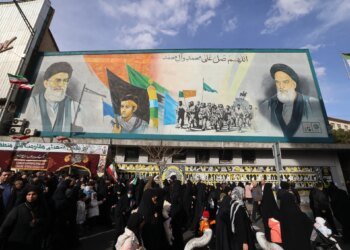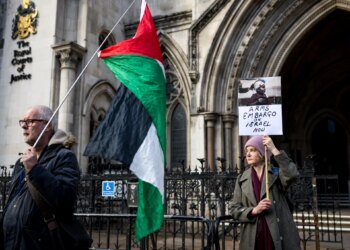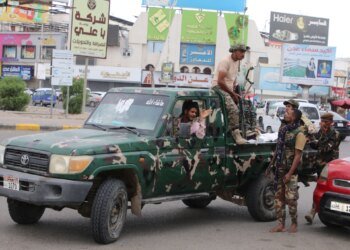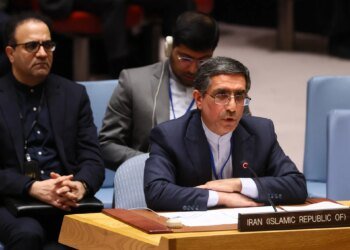More than 1,300 pilgrims died during this year’s Hajj pilgrimage, which took place amid an intense heatwave, with most of the deceased lacking permits.
“Regrettably, the number of mortalities reached 1,301, with 83 per cent being unauthorised to perform Hajj and having walked long distances under direct sunlight, without adequate shelter or comfort,” Saudi Health Minister Fahad Al Jalajel said on Sunday.
The health system dealt with a large number of people affected by heatstroke this year. Some are still receiving care more than a week after the end of Hajj.
“Among the deceased were several elderly and chronically ill individuals,” Mr Al Jalajel said.
The pilgrims who died were from more than 10 countries, including the US and Indonesia, and some governments are still updating their death tolls.
Arab diplomats told AFP last week that Egyptians accounted for 658 deaths – 630 of whom were unregistered pilgrims. The diplomats said the cause of death in most cases was related to the heat.
Heat challenge
Temperatures in Makkah climbed as high as 51.8ºC this year, Saudi Arabia’s National Meteorological Centre said.
The health system “provided more than 465,000 specialised treatment services, including 141,000 services to those who did not obtain official authorisation to perform Hajj”, the Saudi Press Agency quoted Mr Al Jalajel as saying, as it summarised an interview he gave to state-affiliated Al Ekhbariya channel.
Saudi officials said 1.8 million people took part in the pilgrimage this year, with 1.6 million travelling from abroad.
In the past several years, Hajj has taken place during the Saudi summer.

Since Islam follows a lunar calendar, the timing of the Hajj moves forward by about 11 days each year on the Gregorian calendar. This means it will take place earlier in June next year, when the heat is expected to be less intense.
On Saturday, Egyptian Prime Minister Mostafa Madbouly ordered 16 tourism companies to be stripped of their licences and asked prosecutors to investigate their managers over illegal pilgrimages to Makkah.
Egypt’s cabinet said the rise in the number of deaths of its citizens during the pilgrimage was caused by companies that “organised Hajj programmes using a personal visit visa”, which prevents holders from entering Makkah through official channels.
Unregistered pilgrims say they had ‘no choice’
In many cases, unregistered pilgrims did not have access to amenities meant to make the pilgrimage more bearable, including air-conditioned tents and access to hospitals and clinics at the holy sites.
Saudi Arabia barred more than 300,000 people from entering Makkah as they did not have permits to perform Hajj this year.
These include 153,998 who arrived on tourist visas. However, many more still went undetected.
A Saudi Foreign Ministry source said it was difficult to identify the remaining bodies as many of the deceased were not registered in Hajj databases and had entered Makkah on tourist visas.
“The kingdom has attempted to warn all pilgrims that they needed to register but many, unfortunately, chose not to,” the source said.
“We’re still working with Egypt and other countries to identify the dead and those who were buried immediately in accordance with Islamic law but it will be a long process.”
Another source from the Ministry of Hajj and Umrah said thousands of visitors, mostly middle-aged and elderly Middle Eastern men, entered Saudi Arabia on visit visas months before Hajj and hid as they waited for the pilgrimage to start.
“The issue is they evade security checks during the Umrah period and then stay hidden in apartments in Makkah until the Hajj,” the source told media.
“Most of them then struggle with the intense heat and are scared of approaching health facilities because they lack the permit and are afraid of being blacklisted later on.”

Hajj permits are allocated to countries on a quota system and distributed through a lottery system.
The steep costs of a permit spur many to embark on the pilgrimage without one, putting them at risk of being arrested and deported if caught.
An Egyptian who attended Hajj this year without a permit told media that he had applied for one several times over the years to no avail.
“I came over to Jeddah two months before the Hajj under an Umrah visa and decided to stay in Makkah in an apartment with other Egyptians until the Hajj,” he said.
“I saved up several years ago to make this journey but every year I’m not fortunate enough to receive one under Egypt’s lottery.”
The Saudi General Authority for Statistics said more than 1.83 million people took part in the pilgrimage this year.
The number includes 221,854 domestic pilgrims, including citizens and residents of the kingdom, and more than 1.61 million from abroad.
Last year, more than 1.8 million pilgrims performed Hajj, which was lower than pre-coronavirus levels. In 2019, more than 2.4 million people made the pilgrimage.









 United Arab Emirates Dirham Exchange Rate
United Arab Emirates Dirham Exchange Rate

